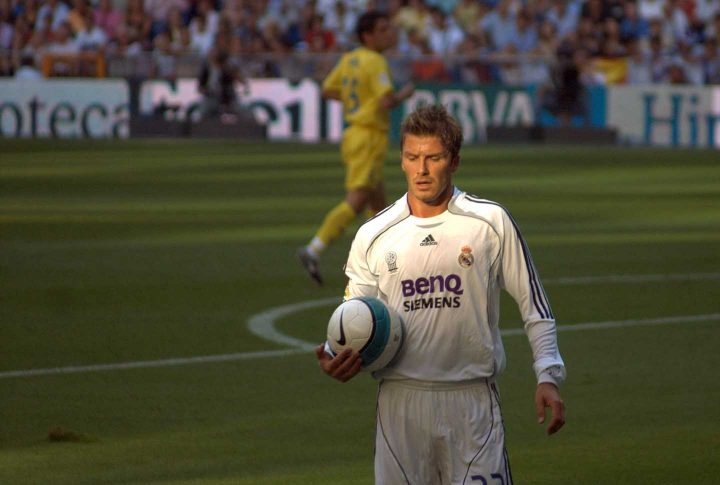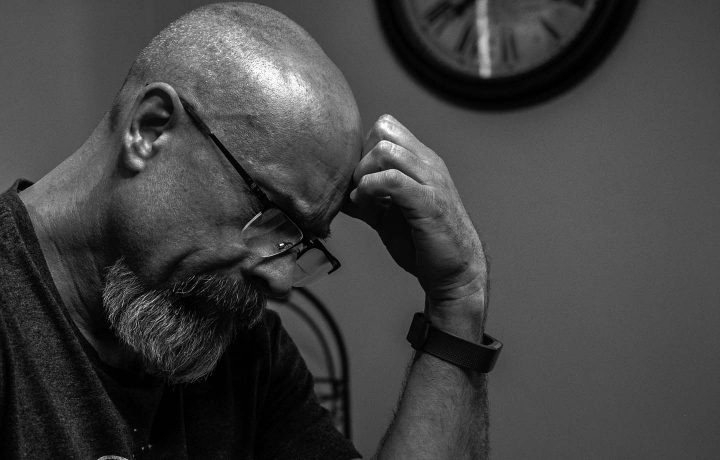Obsessive-compulsive disorder, or OCD is a very unpleasant mental suffering, that can have a drastic impact on somebody’s life. What is OCD, and what can somebody do to deal with it?

OCD affects 0.7 to 2.5% of the population. So, for example, in a city with 100,000 inhabitants, there should be between 700 to 2500 people with this mental disorder. It is a suffering which bothers a lot, and can become so serious in certain situations, that it disturbs the studies, professional, social and family life of the person.
Famous and rich people also have OCD. For example, a Brazilian singer of popular romantic music, Roberto Carlos has obsessive-compulsive disorder. If you go to his official website, he published information about this suffering. Another example is actress Luciana Vendramini, who also suffers from OCD. Daniel Radcliffe, the actor who played the role of Harry Potter, discovered that he had OCD at the age of five. He said: “I had to repeat every sentence I said quietly again. And I would like to encourage everyone with this problem to go through therapy. That doesn’t mean you’re crazy or weak.”
Also David Beckham, famous English football player has always admitted that he suffers from OCD, and that in his life this mental illness manifests itself in the constant need for cleanliness and perfection of everything around him. Anything out of order produces tension in him, everything for him has to be in pairs. If there are three glasses in the sink, you have to add one more to make two pairs, or you have to remove one to make only one pair. There can’t be three pairs of soccer boots in his closet. He has to have either two pairs or four pairs, always an even number, that’s an example of obsessive-compulsive disorder.

Another famous person with OCD was the singer Michael Jackson. In addition, it seems that he also suffered from a disorder called BDD body dysmorphic disorder, which is a mental illness that is characterized by disturbing the person’s perception of their own body image, leading to irrational concerns about defects in some part of their body, and this would then explain the countless plastic surgeries he had in his short life. His ex-wife Lisa Presley said he never took off makeup. Many who suffer from this suffering from body dysmorphic disorder are at greater risk of becoming addicted to plastic surgery.
What is OCD?
The name of this disease called OCD, obsessive compulsive disorder already says: obsession and compulsion. A person with this mental suffering has intrusive thoughts, which he doesn’t want to have and are disturbing his conscience. Examples of these thoughts could be like: Did I lock the door at home? Or: Did I germs from touching that object? Those are thoughts that don’t stop, don’t give peace, and the person feels a compulsion to do what the thoughts say.
In the first case I mentioned, in which obsessive thoughts are questioning if he really closed the door, this person has the compulsion to check several times if he really did lock the door. In the second case where thoughts obsessively say that he may have been contaminated, he will compulsively wash his hands over and over again, ten, fifteen or twenty times.

Compulsive thoughts keep telling the person with OCD to practice the compulsive acts, because if they don’t do it, anxiety arises that disturbs a lot, and if the person doesn’t practice what obsession says, he will be very restless. So, obsession in the case of obsessive-compulsive disease, obsession has to do with repetitive thoughts in the individual’s consciousness, and compulsion has to do with the repetition of attitudes, of acts that have the purpose of alleviating those disturbing thoughts. So obsession is thinking, compulsion is doing.
Former model and actress Luciana Vendramini, in an interview she gave to the newspaper Folha de São Paulo, she spoke about the problem, saying that she had what I call synchronized intrusive thoughts, that is, she needed to imagine something good along with an action. For example, while washing hands she needed to think about nice things. When she had a bad thought, she had to wash her hand again, so she commented that she spent 24 hours repeating quirks. She used to spend 8 hours taking a bath. What suffering, right?
There are various types of obsessive thoughts, such as the thought that the person has committed an unforgivable sin, or that they have to tidy their closet perfectly, or that they have to fix a picture on the wall that is a little crooked, or that they have to do three-taps on the wall whenever they think of a word, or have to skip the lines on a sidewalk and other things of this nature. In fact, in the film: “As Good as It Gets”, actor Jack Nicholson plays the role of a person with obsessive-compulsive disorder.

Normal people can have thoughts that repeat themselves in the mind, but it’s temporary and it’s not chronic, it passes, it ends, but in individuals with OCD thoughts become recurrent or obsessive, they persist and it becomes the pattern of thinking. This causes a lot of anxiety, and a lot of anxiety makes things to appear worse.
In OCD, the attempt to alleviate the anxiety produced by obsessive thoughts is to practice compulsive acts. For example, if in the mind of a person with OCD, obsessive thinking is about contamination, he may try to alleviate this through the ritual of washing his hands exaggeratedly dozens of times a day. If the obsessive thinking is about whether he really turned off the light in a room at home or at work, he can check if he did it dozens of times, one after another.
How to treat OCD?
Some scientists believe that OCD has to do with brain changes and that it’s necessary to use medication to treat it, but it’s not just that. There are other emotional complications that create a lot of anxiety, and the mind uses obsessive thoughts and compulsive acts as a defense against deep emotional pain. So in the cause of OCD there are physical factors, emotional factors, and even spiritual factors.
It helps to fight OCD by telling yourself that obsessive thoughts have no moral value but are the result of neurochemical changes, perhaps due to excess anxiety. That’s why the person with OCD needs to devalue obsessive thoughts as much as they can and tell themselves that they don’t have to do what they say.

It’s also important to struggle to think of something else to replace obsessive thinking. This is difficult at first, it’s true, but with time a person may be able to avoid concentrating on obsessive thoughts, choosing to think about other things. This will be difficult at first because there is a strong anxiety that drives the person to these thoughts, and they in turn lead to repetitive compulsive acts. This means that when a person struggles to prevent obsessive thoughts from continuing in their mind to disturb them, they may feel more anxiety, they may be restless, distressed, but with time this anxiety may begin to diminish, without the person needing to practice compulsion to get relief from those obsessive thoughts.
So an exercise that can help, is when obsessive thoughts come, instead of just practicing the compulsive act, say to yourself: I will wait about 20 minutes without getting carried away by the need to act compulsively. After a few days or weeks, this waiting time can increase a little more. If somebody has the compulsion to wash hands for several minutes, the person can reduce the time spent washing their hands. He might decide to wash it using less time, instead of spending 15 minutes washing his hands, he might decide maybe it’ll be just ten minutes. Then further shorten this time and get busy with another task.
Don’t be ashamed to talk about this suffering to anyone. If you are unable to gradually stop compulsive acts, even trying hard to do so, then seek professional help with a psychiatrist or psychologist. It is because when obsessive-compulsive disorder becomes severe enough to disrupt the person’s social and work life, temporary medication prescribed by the psychiatrist may be necessary, in addition to psychotherapy with a clinical psychologist.

Stay Always Up to Date
Sign up to our newsletter and stay always informed with news and tips around your health.

Dr. Cesar Vasconcellos de Souza is working as a psychiatrist and international speaker. He is author of 3 books, columnist of the health magazine “Vida e Saúde” for 25 years, and has a regular program on the “Novo Tempo” TV channel.
Leave a Reply